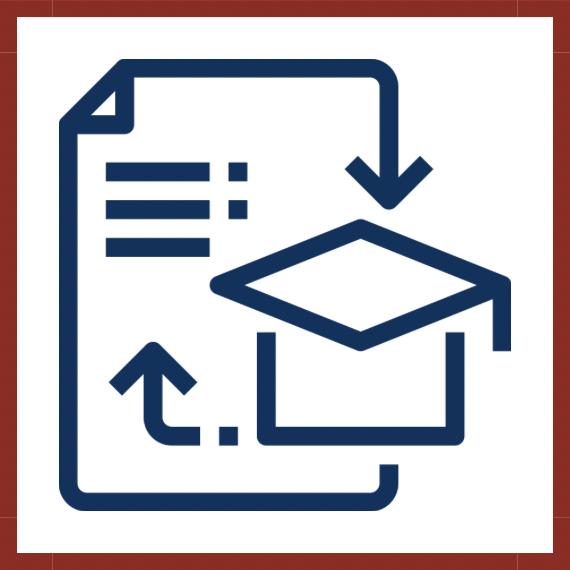Level and Duration of the Program: Master, 4 Semesters.
Renewable Energy Engineering Master's Program Mission
The objective of the Renewable Energy Engineering Master's Program is to furnish students with extensive understanding of eco-friendly energy sources and technologies, to cultivate their analytical and engineering proficiencies to devise inventive solutions, and to motivate them to participate in scholarly pursuits within this domain.
Renewable Energy Engineering Master's Program Vision
The goal of the Renewable Energy Engineering Master's Program is to develop globally competent professionals and innovative problem solvers in the field of sustainable energy by fostering leadership skills in students and keeping them informed about industry developments, with the ultimate aim of inspiring them to create cutting-edge solutions to meet future energy needs.
Program Purpose: The aim of the Renewable Energy Engineering Master's Program is to provide students with a deep understanding of renewable energy sources, to develop extensive knowledge and skills in sustainable energy systems, and to enable students to contribute to the field and create innovative solutions to various engineering challenges.
The program aims to provide professionals in the renewable energy sector with the requisite abilities to undertake research, design, analysis, and apply their knowledge by offering a platform for students to hone these skills.
1. Teaching Basic Concepts: Explain the main concepts in the field of renewable energy.
2. Providing In-Depth Knowledge: To provide detailed information on sustainable energy sources and technologies.
3. Developing Skills: To provide students with the ability to produce innovative solutions by increasing their analytical and engineering skills.
4. Adapting to Current Developments: To provide students with a harmonious perspective on the sector by following the latest developments in the energy sector.
5. Developing Leadership Abilities: To support students with leadership abilities, enabling them to evolve into proficient professionals and competent problem-solvers in their respective industries.
6. Providing Practical Experience: To undertake the practical education of students in the design, evaluation, and execution of sustainable energy systems.
7. Fostering Research Capabilities: To establish an academic framework that enables students to contribute to the industry through the development of research capabilities.
Program Outcomes: The accomplishments of the Renewable Energy Engineering Master's Program may be succinctly enumerated as follows:
1. Renewable Energy Fundamentals: Understanding basic concepts in the field of renewable energy.
2. Technological Knowledge and Practice: Ability to recognize and apply sustainable energy technologies.
3. Analytical Thinking Ability: Developing analytical thinking skills in order to produce innovative solutions.
4. Keeping Up with Sectoral Updates: Adapting to the sector by following the current developments in the energy sector.
5. Leadership and Communication Skills: Developing leadership abilities and gaining effective communication skills.
6. Practical Experience: Practical experience in the development, evaluation, and execution of sustainable energy systems.
7. Research and Innovation Capability: Fostering innovation capacity in order to make a meaningful contribution to the industry, through the nurturing of research talents.
Program Employment Areas: Graduates of the Renewable Energy Engineering Master's Program who have achieved successful completion are eligible to pursue employment opportunities in the following priority areas:
1. Energy Companies: Specialist positions in companies engaged in energy production and distribution.
2. Green Technology Companies: Job opportunities in companies that develop or implement renewable energy technologies.
3. Corporate Organizations: Specialized positions in public enterprises that formulate and implement energy policies.
4. Research Institutions and Laboratories: Opportunities to work in institutions and laboratories that conduct research in the field of renewable energy.
5. Consulting Firms: Engineering and consultancy positions in companies providing consultancy services to the energy sector.
6. Educational and Academic Institutions: Academic career as an academician or scientific researcher in educational institutions.
7. Environment and Energy Efficiency Units: Field expertise and consultancy positions in the environmental and energy efficiency units of companies.
Courses Process: The Renewable Energy Engineering Master's Program employs an internet-based Learning Management System (LMS) to deliver its coursework. Through this platform, students are able to participate in online classes and complete the program remotely.
1. Basic Renewable Energy Concepts: Introduction to basic renewable energy sources such as wind energy, solar energy, hydroelectric energy.
2. Energy Systems Analysis: Theoretical and practical courses on analysis, optimization and modeling of energy systems.
3. Renewable Energy Technologies: Extensive analysis of solar panel technologies, wind turbine systems, and hydroelectric power plants.
4. Energy Storage Systems: Courses focusing on energy storage solutions such as battery technologies, pumped storage systems.
5. Energy Policies and Management: Courses on the analysis and implementation of energy policies and sustainable energy strategies.
6. Project Management and Implementation: Courses on planning, management and implementation of renewable energy projects.
7. Research and Innovation Seminars: Seminars focusing on current research and innovation in the field of renewable energy.
8. Industrial Cooperation: Joint implementation and industrial collaboration opportunities with organizations in the industry.


Bölüm Müfredati / Department Curriculum
